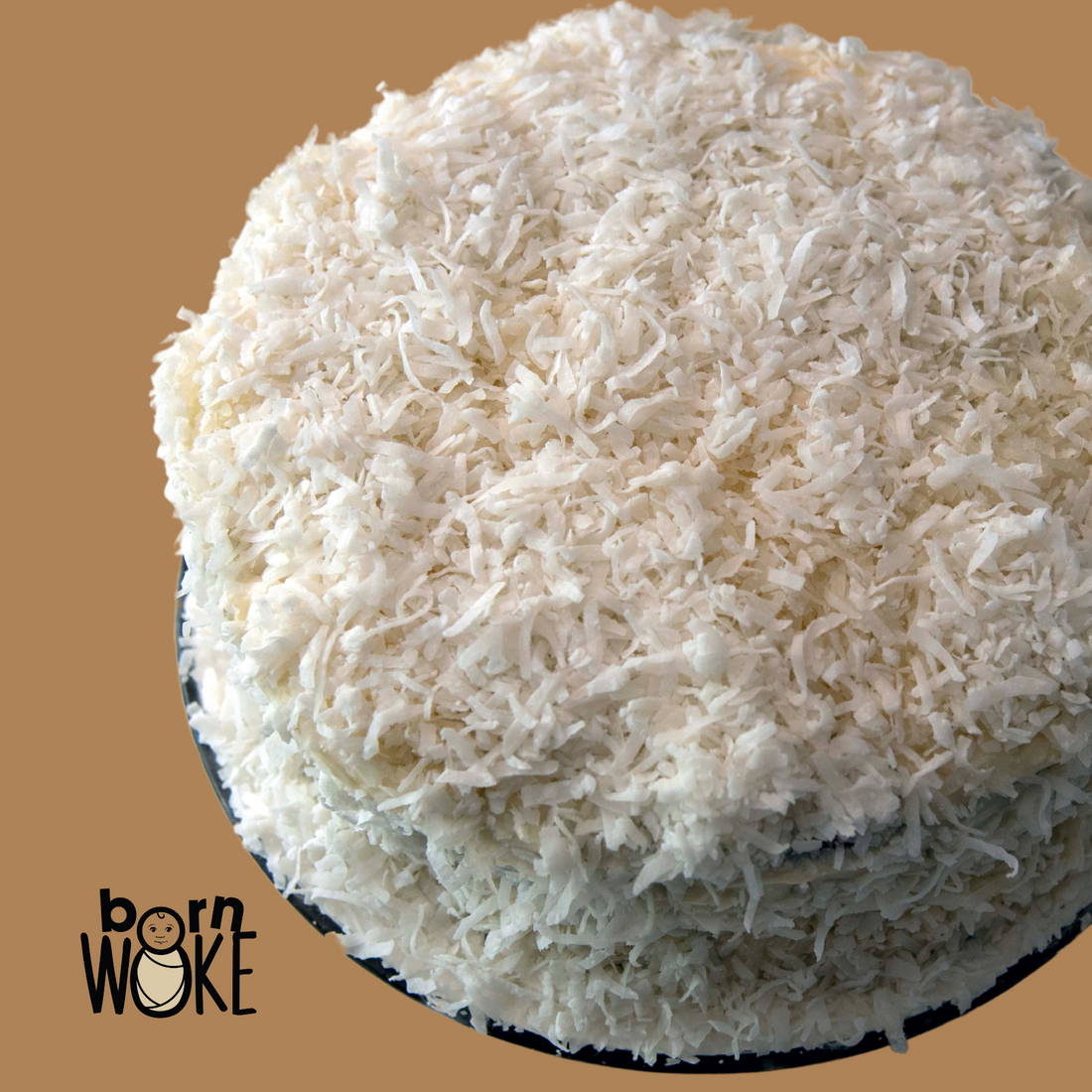At Born WOKE Kids, every hue has a story—a narrative that weaves through the fabric of Black culture and history. We could use the common names, but that wouldn’t be fun, memorable, or educational. We name them with intention, embracing the power of storytelling through shades that resonate with our heritage. So, with that being said – say hello to Coconut Cake!
In the heart of many Black households, there’s a culinary masterpiece that stands as both a dessert and a symbol of shared joy—the Coconut Cake. This delectable creation is more than a sweet treat; it’s a cultural icon, a testament to the artistry embedded in soul food.
The first coconut cakes in America were made by enslaved people in the South who brought with them from Africa their knowledge of how to break down a coconut. Emerging from the deep South and cherished across generations, the Coconut Cake has become a fixture at family gatherings, celebrations, and Sunday dinners. Each layer is carefully crafted and stacked high to create a tower of sweetness. The cake is a blend of moist, velvety layers, often paired with a coconut-infused frosting that captures the essence of the tropics.
Its origins can be traced to the intricate web of African American culinary traditions, where resourcefulness and creativity converge. Coconut, a versatile ingredient, found its way into the Black community through various channels, including Gullah cuisine and the flavors of the Caribbean.
A group known as “The Club from Nowhere” played an essential role during the 1955 Montgomery Bus Boycott by preparing and selling meals to fund the resistance. Led by Georgia Gilmore and supported by Dr. Martin Luther King, Jr., through the Montgomery Improvement Association (MIA), the women also baked sweet potato pies and coconut layer cakes to accompany the meals. The funds generated were instrumental in buying cars, fuel, and picket signs for the boycott. In spirited competition, the clubs announced their weekly earnings at mass meetings, contributing $125 to $200 per week during the 385-day boycott. Additionally, Georgia Gilmore provided meals to MIA members who had little time for cooking due to extended walks to work.
The act of preparing and sharing Coconut Cake transcends the kitchen—it’s a ritual that binds families and communities together. The layered confection mirrors the layers of shared history, resilience, and joy within the Black experience.
So, when we named our Gerber Onesie® color “Coconut Cake,” it was more than a whimsical choice; it was a nod to the cultural richness embedded in every layer of this highly favored dessert, reflecting the richness we aim to infuse into every piece we create at Born WOKE Kids.
Do you have a coconut cake story to share? Join the conversation on our Instagram page.
